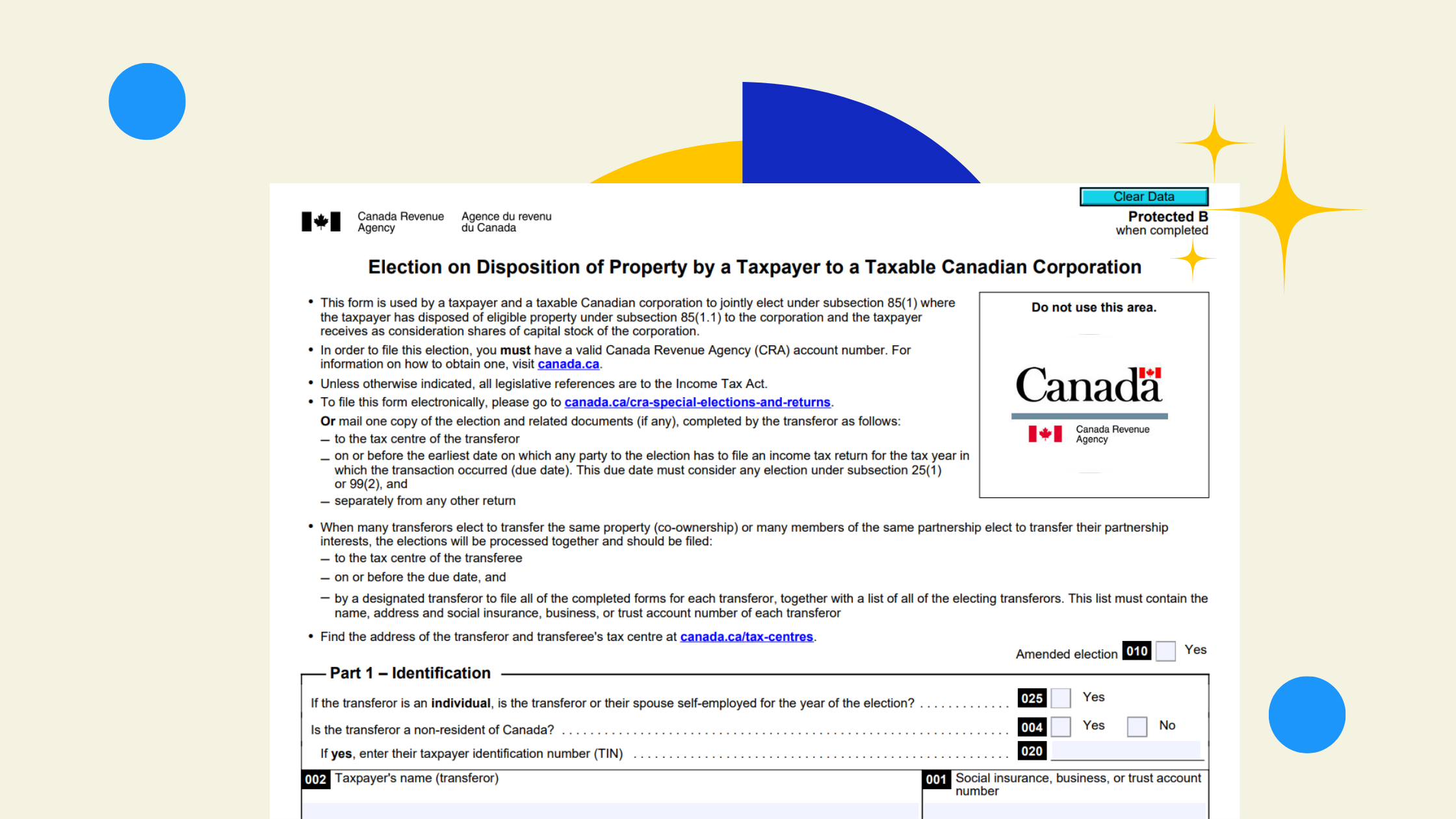Small business accounting starts at $250/hour or $450/month and can scale up to $1,500/month.
Here’s a guide on what that actually includes and what affects the price.
What Does An Accountant Do?
The right accounting team combines month end reconciliation, tax preparation, and financial advice — giving you a clear snapshot of where your business stands each month through organized financial records and timely reporting.
Here are a few key responsibilities your accountant should take care of.
Keeping You CRA Compliant
CRA compliance isn’t optional. Your accountant should make sure all filings are accurate and submitted on time, including:
- GST/HST and sales taxes
- Payroll taxes and source deductions
- Corporate tax returns and instalments
- Year-end return preparation and supporting schedules
For Canadian small businesses, staying compliant means avoiding interest, penalties, and audit risk. The right accounting firm proactively monitors deadlines and ensures you meet every CRA requirement without last-minute panic — saving you valuable time and unnecessary stress.
Reconciling Month-Ends
Reconciling your financial transactions each month ensures that what’s in your accounting software matches what’s in your bank account.
This is the foundation of accurate financial statements, including your income statement (P&L) and balance sheet. Every transaction from supplier invoices to customer payments needs to be reviewed, categorized, and reconciled.
When your accountant closes your month-end, you should receive clear, simple reports showing revenue, expenses, and profit. That’s how you make smart business decisions not just at tax time, but every month.
Skipping this step leads can lead to inaccuracies and extra time cleaning up errors later.
Ensuring You’re Taking Advantage of Available Deductions
A professional accountant makes sure you’re maximizing legitimate tax deductions.
They’ll review your bookkeeping records and identify savings through:
- Home office, vehicle, and equipment write-offs
- CCA (capital cost allowance) on depreciable assets
- Tax credits for digital adoption or hiring apprentices
- Deductible business meals, travel, and insurance
A good tax accountant knows the difference between a simple tax return and a complex tax return and ensures you’re claiming everything you’re entitled to, without triggering red flags.
The right accounting team can often find savings that more than cover their own fees.
Filing Tax
Tax filing is one of the most visible, but least understood, parts of what you’re paying for.
Your accountant should handle all corporate tax returns, GST/HST filings, and any required payroll or sales tax submissions. But beyond return preparation, they should also:
- Estimate your tax liability in advance
- Help you set aside funds for future payments
- Advise on salary vs. dividends for owner compensation
- Provide ongoing tax consulting for year-round planning
If your accountant only appears at year-end, you’re likely missing tax-saving opportunities throughout the year — and spending extra time fixing preventable issues in your financial records.
Hourly vs. Monthly Acounting Fees
Accounting fees can be structured in two ways: hourly or monthly.
- Hourly billing is when your accountant works on your file, tracks the hours, and sends you a bill at the end of the month.
- Monthly fixed-fee plans are scoped to what you need and are the same every month until there is a substantial change in your business
Hourly billing is usually best if:
- You have a one time project you need completed (e.g. financial statements or reports for a loan)
- You are just starting up and only need an hour/month of support for questions and recconcilation
Monthly billing is usually best if:
- You are generating income consistently
- You have more than 50 transactions/month coming in and our of your business
- You have employees
Hourly accountants usually charge $250/hour
Monthly fixed fee accountants usually start at $450/month
Most small businesses prefer monthly pricing that bundles bookkeeping tasks, financial reporting, payroll taxes, and tax preparation into one consistent fee. You also know you aren't being charged every time you ask a question.
Factors That Can Impact Price
Your accountant’s cost isn’t arbitrary but rather driven by how complex your business is, how your financial data is managed, and what you expect from your accounting firm.
Complexity of Transactions
A sole proprietorship offering professional services with simple invoices and expenses will have lower bookkeeping and accounting costs than a business managing wholesale inventory, high-volume transactions, or multiple sales channels.
The more complex your transaction volume, the more time your accountant spends reconciling and reviewing data for accuracy. Advanced accounting software helps, but manual oversight is still essential to prevent inaccurate bookkeeping that can distort your income statement or tax filings.
Complexity of Corporate Structure
Adding holding companies, family trusts, or multiple corporations introduces more tax filing and inter-company accounting tasks.
While these structures can be beneficial for tax planning once you reach around $1 million in revenue or retained earnings, they do increase professional accountant fees. Each entity requires its own set of books, reconciliations, and corporate tax returns.
For smaller businesses, a simplified structure is usually more cost-effective as the savings you gain don't justify the accounting fees that come with handling a holding company or trust.
Taking on Responsibilities Outside of Accounting
Be cautious of firms that charge CPA rates for routine bookkeeping services.
Your bookkeeper should handle day-to-day data entry and reconciliation, while your accountant focuses on strategy, tax consulting, and compliance. Paying CPA-level rates for basic tasks inflates your monthly fees unnecessarily.
A smart setup divides roles clearly:
- Bookkeeper: Handles data entry, reconciliations, and receipt management
- Accountant/Controller: Reviews financial statements, files taxes, and offers financial advice
This layered approach keeps costs efficient, improves quality, and ensures your financial records stay accurate without wasting extra time or money.
The Bottom Line
A great accountant does more than file taxes — they make your business stronger.
They’ll keep you CRA compliant, optimize your deductions, and give you accurate financial statements that actually mean something.
If your accountant’s pricing feels vague or reactive, ask for a breakdown. Transparent accounting costs reflect transparent work.
At Mesa CPA, we believe small business owners deserve accounting services that are proactive, clear, and affordable. Whether you’re managing a sole proprietorship, a growing corporation, or a complex structure, our team of Canadian accountants delivers end-to-end support — from bookkeeping to corporate tax returns — so you can focus on running your business, not reconciling it.



.png)

